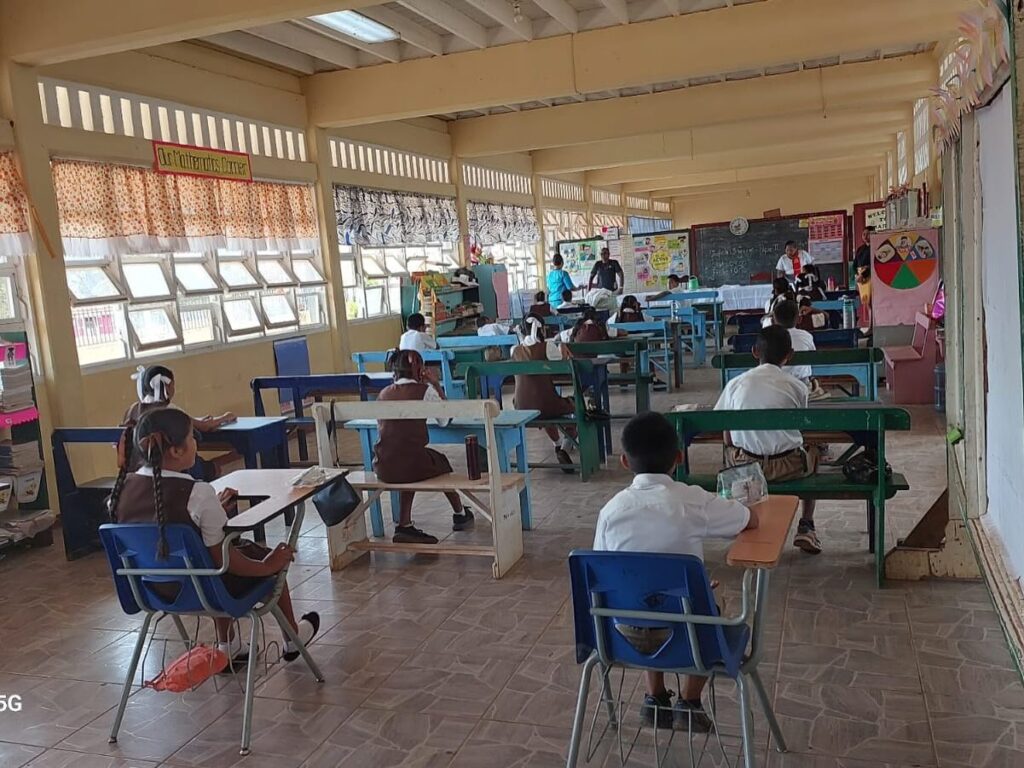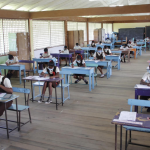
Over 15,000 Grade Six students from across the country are sitting their second round of mock exams in preparation for the National Grade Six Assessment (NGSA) examinations, which will be administered in May.
Minister of Education, Priya Manickchand explained that the mock exams are set, managed and run by the Caribbean Examination Council (CXC), and are intended to assess the needs of the students ahead of the NGSA exams in May.
“These children who are writing now left school in Grade 2, and they were out of school for two very formative years – Grade 2, Grade 3, Grade 4 – well three very formative years. So, what we want to do is to make sure we assess and give teachers a chance to correct where they see correction is needed, which is why we are doing the mocks,” Minister Manickchand told reporters on Wednesday.
The NGSA exams are scheduled for Thursday, May 2 and Friday, May 3, 2024. According to the Ministry of Education, approximately 15,566 pupils are registered for the exams.
Last year, the country registered improvements in both Mathematics and Science, while English remained constant with a pass rate of 64%. However, there was a slight decline in Social Studies.
While speaking at the launch of the Education Ministry’s Mathematics and Social Studies textbook series on Wednesday, Minister Manickchand said despite continuous investments in education, she is disappointed that children are showing up at the NGSA exams unable to read and write.

“Schools will have to be managed, managed for effective delivery of education, which can, and will be measured by results. Not only NGSA, not only NGSA but from level-to-level results. I still need an explanation about how we have children sitting at NGSA, taking an exam, unable to write a single word on the paper, making loops with their pencils because they were unable to read a single word on paper, when they went to school at Nursery 1, Nursery 2, Grade 1, Grade 2, Grade 3, Grade 4, Grade 5, and Grade 6 – eight years, eight teachers, at least two headteachers. How could this be happening,” the education minister said.
She said the teachers must be held accountable, and while the Education Ministry has no intention of walking around with “a big stick,” it will hold the hands of teachers and bring them to a place where they understand the importance of getting results.
“And results don’t necessarily mean a 100% or everybody gets Queen’s College, it means everybody could read and write, it means you move a child from being unable to read in Grade One to Grade Two; it means seeing progress in the child’s handwriting, in the child’s behavior, in the child’s reading ability, in ferreting out what interest this child has. So, we could measure by many different things, but we will be measuring on literacy and numeracy,” Minister Manickchand explained.
She said when compared to the past, children have access to more educational resources now more than ever, and the Education Ministry will continue to monitor their performance in school.











You must be logged in to post a comment Login